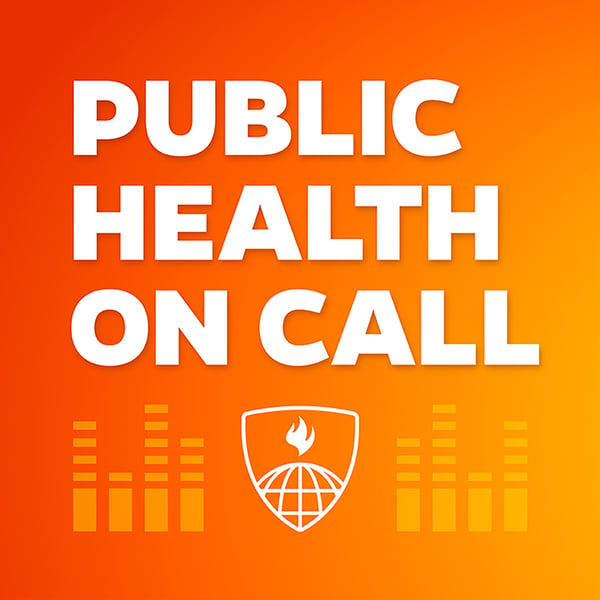859 - What Foreign Aid Means For National Security
Public Health On Call
The Johns Hopkins Bloomberg School of Public Health
4.8 • 620 Ratings
🗓️ 28 February 2025
⏱️ 12 minutes
🧾️ Download transcript
Summary
About this episode:
The abrupt halt of USAID funded programs around the world has caused confusion and chaos, and the consequences are likely to have a long tail. In today’s episode: Joe Amon, an expert in global aid and human rights, discusses some of the direct and indirect impacts of disengaging from this work.
Guests:
Joe Amon is the director of the Johns Hopkins Center for Public Health and Human Rights.
Host:
Dr. Josh Sharfstein is vice dean for public health practice and community engagement at the Johns Hopkins Bloomberg School of Public Health, a faculty member in health policy, a pediatrician, and former secretary of Maryland’s Health Department.
Show links and related content:
-
Public Health is a Human Right—Public Health On Call (December, 2024)
-
What Is USAID and Why Is It At Risk?—The Council on Foreign Relations
Contact us:
Have a question about something you heard? Looking for a transcript? Want to suggest a topic or guest? Contact us via email or visit our website.
Follow us:
Transcript
Click on a timestamp to play from that location
| 0:00.0 | Welcome to Public Health On Call, a podcast from the Johns Hopkins Bloomberg School of Public Health, |
| 0:05.9 | where we bring evidence, experience, and perspective to make sense of today's leading health challenges. |
| 0:16.3 | If you have questions or ideas for us, please send an email to public health question at jh.h. |
| 0:22.6 | That's public health question at jh.h.u.edu for future podcast episodes. |
| 0:30.6 | Hey listeners, it's Lindsay Smith Rogers. Today, a deeper look at what it means for the U.S. to cut back on global health investments. |
| 0:38.8 | Professor Joe Eamon is the director of the Center for Public Health and Human Rights at the Johns Hopkins Bloomberg School of Public Health. |
| 0:44.9 | He speaks to Dr. Josh Sarsstein about why helping other countries fight disease is good for health and security in the United States. |
| 0:53.1 | Let's listen. |
| 0:54.8 | Professor Joe Aman, thank you so much for joining me today. |
| 0:57.7 | I'm Public Health on Call to talk about foreign aid for health and what it means for national |
| 1:02.8 | security. |
| 1:03.8 | How are you doing today? |
| 1:04.9 | Good. |
| 1:05.9 | I'm delighted to be here. |
| 1:07.0 | Before we jump into this topic, I just wanted you to introduce your experience in this area to our viewers. Tell us about how you got started in Global Health. |
| 1:18.6 | Sure. So I've been engaged in Global Health for quite a while now. I went to public health school and then joined the Peace Corps and spent two years in West Africa |
| 1:27.8 | working on Guinea warm eradication. After that, I worked on a number of HIV programs and |
| 1:33.4 | sub-Saharan Africa, but also in Asia and Latin America, and worked also on a broader range of |
| 1:41.2 | parasitic diseases that are grouped together as neglected tropical diseases |
| 1:45.1 | and worked really on a wide range of other issues too at times on environmental health issues in |
| 1:50.6 | Africa, on nutrition issues. And it's been, it's been quite an experience because I've really |
| 1:56.8 | had fantastic partners in ministries of health and non-governmental organizations and community groups |
... |
Please login to see the full transcript.
Disclaimer: The podcast and artwork embedded on this page are from The Johns Hopkins Bloomberg School of Public Health, and are the property of its owner and not affiliated with or endorsed by Tapesearch.
Generated transcripts are the property of The Johns Hopkins Bloomberg School of Public Health and are distributed freely under the Fair Use doctrine. Transcripts generated by Tapesearch are not guaranteed to be accurate.
Copyright © Tapesearch 2025.

